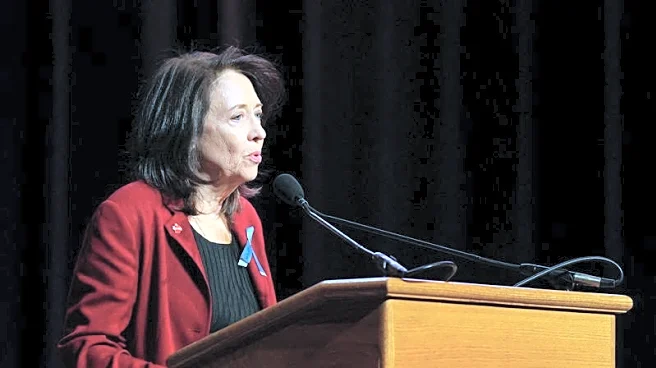What is the story about?
What's Happening?
The Trump administration has proposed a new rule to limit the duration foreign students can study in the United States to a maximum of four years. This rule targets visas for foreign students, cultural exchange programs, and foreign media. Currently, foreign students with F visas can stay in the U.S. for the duration of their studies, but the new rule would set a fixed period not exceeding four years. The administration argues that past policies have allowed foreign students to remain indefinitely, posing safety risks and costing taxpayer dollars. The State Department has also increased regulations for vetting student visas, revoking over 6,000 visas this year due to legal violations.
Why It's Important?
The proposed rule could significantly impact international students and educational institutions in the U.S. by potentially reducing the number of foreign students who choose to study in the country. This may affect the diversity and financial stability of U.S. universities, which often rely on international students for tuition revenue. The rule reflects broader immigration policies under President Trump, emphasizing national security and economic concerns. Stakeholders such as universities, foreign governments, and students may face challenges adapting to these changes, potentially leading to diplomatic tensions and shifts in global educational trends.
What's Next?
If implemented, the rule will require foreign students and exchange visitors to adjust their plans to fit within the new time constraints. Educational institutions may need to revise their programs and support services to accommodate these changes. The proposal is likely to face scrutiny and opposition from educational and civil rights groups, who may argue that it undermines academic freedom and international collaboration. The administration will need to navigate these challenges as it seeks to enforce the new policy.

















